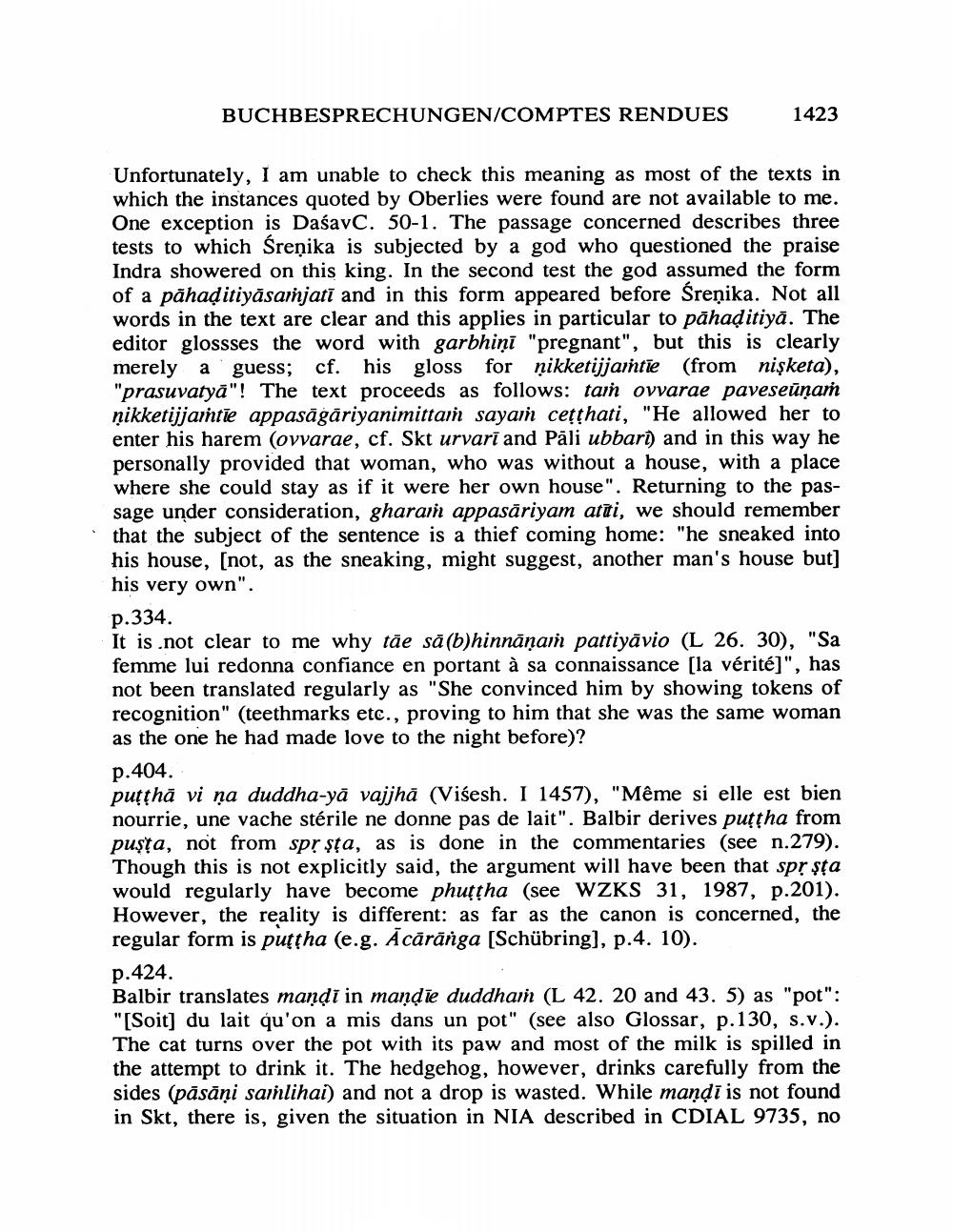Book Title: Buchbesprechungen Comptes Rendues Author(s): Nalini Balbir Publisher: Nalini Balbir View full book textPage 9
________________ BUCHBESPRECHUNGEN/COMPTES RENDUES 1423 Unfortunately, I am unable to check this meaning as most of the texts in which the instances quoted by Oberlies were found are not available to me. One exception is DaśavC. 50-1. The passage concerned describes three tests to which Śreņika is subjected by a god who questioned the praise Indra showered on this king. In the second test the god assumed the form of a pāhaditiyāsainjati and in this form appeared before Sreņika. Not all words in the text are clear and this applies in particular to pāhaditiya. The editor glossses the word with garbhiņi "pregnant", but this is clearly merely a . guess; cf. his gloss for ņikketijjaintie (from nişketa), "prasuvatyä"! The text proceeds as follows: tai ovvarae paveseūnań ņikketijjartie appasāgāriyanimittain sayain cetthati, "He allowed her to enter his harem (ovvarae, cf. Skt urvarī and Pāli ubbari) and in this way he personally provided that woman, who was without a house, with a place where she could stay as if it were her own house". Returning to the passage under consideration, gharam appasäriyam atīi, we should remember that the subject of the sentence is a thief coming home: "he sneaked into his house, (not, as the sneaking, might suggest, another man's house but] his very own". p.334. It is not clear to me why tāe să(b)hinnänam pattiyāvio (L 26. 30), "Sa femme lui redonna confiance en portant à sa connaissance [la vérité]", has not been translated regularly as "She convinced him by showing tokens of recognition" (teethmarks etc., proving to him that she was the same woman as the one he had made love to the night before)? p.404. putthā vi ņa duddha-yā vajjhā (Višesh. I 1457), "Même si elle est bien nourrie, une vache stérile ne donne pas de lait". Balbir derives puttha from pușta, not from spr şta, as is done in the commentaries (see n.279). Though this is not explicitly said, the argument will have been that spr sta would regularly have become phutha (see WZKS 31, 1987, p.201). However, the reality is different: as far as the canon is concerned, the regular form is puttha (e.g. Acāränga [Schübring), p.4. 10). p.424. Balbir translates mandi in mandie duddhan (L 42. 20 and 43. 5) as "pot": "[Soit] du lait qu'on a mis dans un pot" (see also Glossar, p.130, s.v.). The cat turns over the pot with its paw and most of the milk is spilled in the attempt to drink it. The hedgehog, however, drinks carefully from the sides (pāsāņi sainlihai) and not a drop is wasted. While mandi is not found in Skt, there is, given the situation in NIA described in CDIAL 9735, noPage Navigation
1 ... 7 8 9 10 11 12 13 14 15
